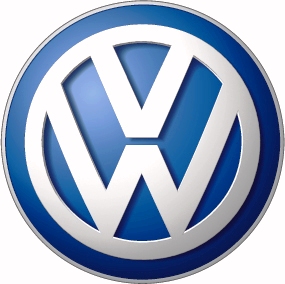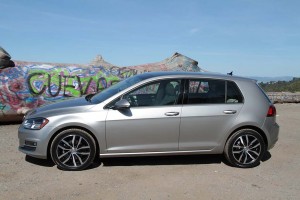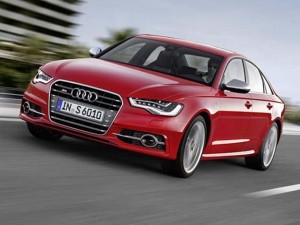
VW is expected to settle the key diesel emissions case on Tuesday in federal court in San Francisco.
Volkswagen could be on the hook to buy back nearly 500,000 diesel vehicles sold in the U.S., with many owners getting $10,000 or more as part of a federal settlement to the maker’s diesel emissions cheating scandal.
The deal, which has reportedly been accepted by the U.S. Justice Department, the Environmental Protection Agency, the Federal Trade Commission and the California Air Resources Board, or CARB, will be the first step in resolving a case triggered by the revelation VW had equipped cars using its 2.0-liter turbodiesel with software designed to lower pollution levels when those vehicles were undergoing emissions tests.
All told, the maker has agreed to a deal worth around $14.7 billion. Of that, about $10 billion will go to compensating owners of the 2009 to 2015 diesel models. Another $2.7 billion is earmarked for “environmental remediation,” according to sources. The remaining $2 billion will fund environmental efforts, including the development of zero-emissions vehicles. Earlier this month, VW said it was planning to launch “at least 30 battery-based models by 2025.
“We cannot confirm a settlement until (the necessary legal documents) are filed by the deadline tomorrow,” Volkswagen of America spokesperson Jeannine Ginnivan told TheDetroitBureau.com.
But the Department of Justice is expected to hold a news conference to discuss the settlement on Tuesday morning. If all goes according to plan, the agreement is expected to be presented to Judge Charles Breyer, in the U.S. Federal District Court in San Francisco, in time to meet the deadline he set at noon local time.
(VW could face tens of billions in additional compensation costs. Click Here for the latest.)
Under the plan, owners of 2009 to 2015 model-year vehicles equipped with VW’s 2.0-liter turbodiesels to receive at least $5,100 in compensation along with the estimated value of those vehicles. The price is based on what those cars were worth in August 2015, a month before the scandal broke. Since then, the value of the typical VW model has dropped by about 19%, according to industry data.
The settlement is also expected to cover those who have leased the affected VW models, as well as those who have already traded in their vehicles.
The settlement will not end VW’s legal troubles. The automaker still has to reach a deal covering its rigging of a second diesel engine, a 3.0-liter version used in larger Volkswagen models, as well as products from Porsche and Audi.
And there are lawsuits outstanding filed on behalf of VW’s dealers, as well as the carmaker’s shareholders. Both civil and criminal cases face the automaker abroad. And VW could come under pressure to provide overseas owners compensation similar to what the agreement calls for in the U.S.
(VW facing new lawsuit from bondholders. For more, Click Here.)
The European Union’s industry commissioner, Elzbieta Bienkowska told the German newspaper Welt am Sonntag that “Volkswagen should voluntarily pay European car owners compensation that is comparable with that which they will pay U.S. consumers.”
Longer-term, VW must still rebuild trust in the American market, said analyst Joe Phillippi, of AutoTrends consulting. But Phillippi said that the maker’s cheating on diesel emissions is only part of its challenge in the U.S., the world’s second-largest automotive market.
“Their biggest problem, totally irrespective of the diesel scandal,” he said, “is that they have yet to come to a firm understanding of how the U.S. automotive market works and what American motorists want.”
In a market where light trucks account for almost 60% of total sales, VW currently offers no pickups and only two SUVs. It will be adding two more models in the near future, including a production version of the CrossBlue concept. How well it will be received in the wake of the diesel scandal remains to be seen.
(All new German cars will have to be zero-emissions vehicles by 2030. Click Here for that breaking story.)


